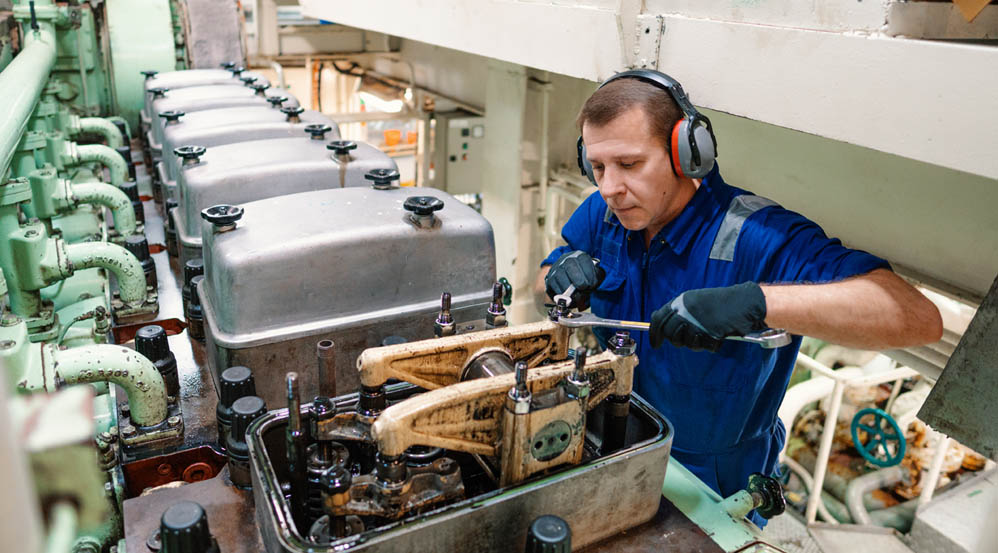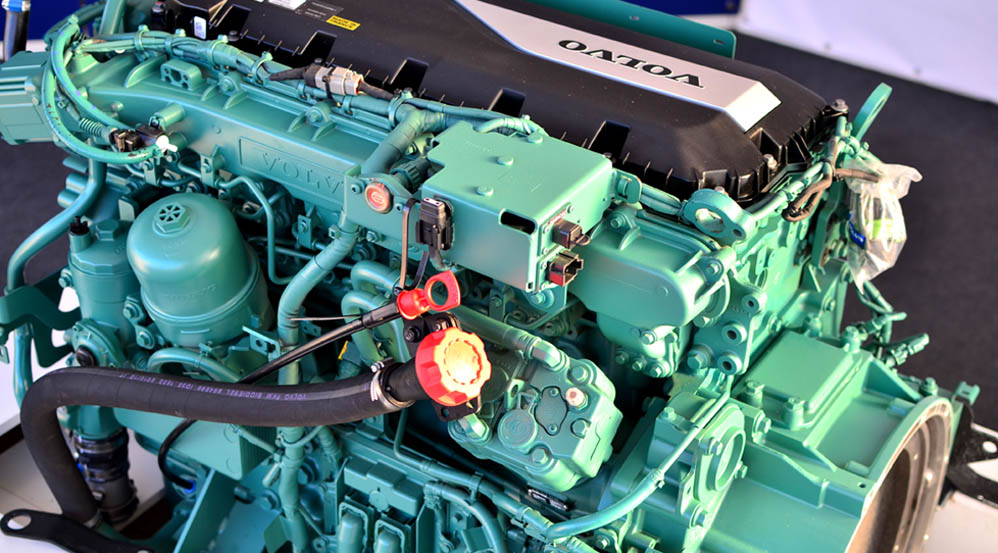- September 6, 2024
- Boat Maintenance
- Identifying and Troubleshooting the Most Common Marine Engine Issues
Marine engines are the heart of any boat, but like all machinery, they can encounter problems over time. Understanding common issues with marine engines can help you troubleshoot and address them before they lead to serious complications. Here’s a look at some of the most frequent problems and how to deal with them.

1. Engine Overheating
One of the most common issues with marine engines is overheating. This can be caused by several factors, including a malfunctioning cooling system, clogged water intakes, or a worn-out impeller. Overheating can lead to severe engine damage if not addressed promptly.
Solution: Regularly inspect the cooling system, including the raw water pump, impeller, and hoses. Ensure the water intake is free from debris and marine growth. If you notice the engine temperature rising abnormally, stop the engine and investigate the cause immediately.
2. Fuel System Problems
Issues with the fuel system can cause a range of problems, from poor engine performance to complete failure. Contaminated fuel, clogged fuel filters, or faulty fuel injectors are common culprits.
Solution: Regularly change the fuel filter and use clean, high-quality fuel. Consider using a fuel stabilizer, especially if the boat will be stored for a long period. Inspect the fuel lines for any cracks or leaks, and ensure that the fuel tank is free from water and sediment.
3. Starting Issues
Difficulty starting the engine is another frequent complaint. This can be caused by a weak battery, corroded electrical connections, or a faulty starter motor.
Solution: Check the battery charge and ensure all connections are clean and secure. If the battery is old or not holding a charge, consider replacing it. Inspect the starter motor for signs of wear or damage, and test the ignition switch for proper operation.
4. Loss of Power
If your marine engine suddenly loses power, it could be due to a number of factors, including fuel delivery problems, clogged air filters, or engine overheating.
Solution: Start by checking the fuel system for blockages or leaks. Inspect the air filters and replace them if they are dirty or clogged. Ensure the cooling system is functioning properly to prevent overheating. If the problem persists, a more thorough inspection of the engine may be necessary.
5. Unusual Noises
Strange noises coming from your marine engine can be alarming. These could range from knocking sounds to unusual vibrations, indicating potential issues like loose components, worn bearings, or problems with the drivetrain.
Solution: Investigate any unusual sounds immediately. Check for loose bolts, worn belts, or misaligned components. If you’re unable to identify the source of the noise, it may be wise to consult a marine mechanic to prevent further damage.
6. Excessive Smoke
Smoke from your marine engine can be a sign of various issues. White smoke typically indicates water in the fuel or a coolant leak, while black smoke suggests an overly rich fuel mixture or dirty injectors. Blue smoke often points to oil burning, possibly due to worn piston rings or valve seals.
Solution: Determine the color of the smoke to identify the possible cause. Check for water contamination in the fuel, inspect the fuel injectors, and look for signs of oil leaks. If you suspect internal engine damage, a professional inspection may be necessary.
7. Battery Problems
Battery issues are common in marine engines, especially if the boat is used infrequently. Corrosion, loose connections, and insufficient charging can all contribute to battery failure.
Solution: Regularly check and clean the battery terminals, ensuring all connections are tight. Test the battery’s charge and replace it if it’s not holding power. Consider using a trickle charger if the boat will be idle for long periods.
8. Corrosion
Marine environments are harsh, and corrosion is a constant threat. Saltwater, in particular, can cause significant damage to the engine and its components if not properly maintained.
Solution: Inspect the engine and its components regularly for signs of corrosion. Rinse the engine with fresh water after each use, especially if operating in saltwater. Apply anti-corrosion sprays to vulnerable parts and ensure anodes are in good condition and replaced as necessary.
9. Engine Sputtering or Stalling
Engine sputtering or stalling can occur due to issues with the fuel supply, air intake, or ignition system. It can be particularly frustrating when it happens at low speeds or under load.
Solution: Check the fuel filters and lines for blockages or air leaks. Inspect the air intake system for clogs or restrictions. Ensure that the spark plugs and ignition system are in good condition. Adjusting the engine’s idle speed may also help resolve sputtering issues.
10. Propeller Issues
While not directly related to the engine, problems with the propeller can affect engine performance. A damaged or improperly sized propeller can cause vibrations, reduce speed, and strain the engine.
Solution: Regularly inspect the propeller for damage, such as bends, chips, or cracks. Ensure the propeller is the correct size and pitch for your engine and boat. Replace any damaged propellers to maintain optimal performance.

Conclusion
Understanding these common marine engine issues and their solutions can help you maintain a reliable and efficient vessel. Regular maintenance, prompt attention to problems, and knowledge of your engine’s quirks will keep your boat running smoothly and ensure you enjoy your time on the water without unexpected disruptions.
Make sure to schedule an appointment with our team of marine engine repair professionals if you’re in need of maintenance, repair, or inspection.
